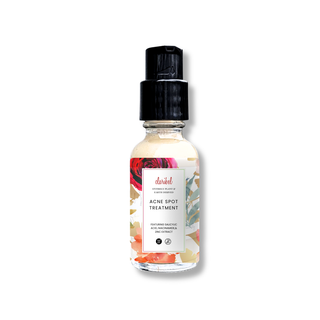
Lemon Peel Bioferment for Your Skin: 4 Amazing Benefits
In this blog post we'll go over the top 4 ways that lemon peel bioferment can benefit your skin.
The peel of a lemon is one of the most useful parts of the fruit. They help keep your lemon juice fresh for longer and give you a new way to use the rest of your lemon after you’ve enjoyed its juice. You can also use lemon peels as a natural remedy for several skin issues, including acne and eczema.
According to Medical New Daily, Lemon contains an abundance of compounds that can help skin in a variety of ways. Just be sure to not put pure lemon directly onto the skin, since it might be a bit too harsh for most people. Using lemon peel bioferment is a great way to correct many skin issues, especially since it is derived from lemon but not as harsh as applying lemon directly to the skin.
The benefits of lemon peel bioferment are numerous; they reduce inflammation, hydrate dry skin and balance oil production in oily skin. Lemon peels also have antibacterial properties that make them great for treating pimples and other blemishes caused by bacteria. Read on to learn more about why you need to start using lemon peel bioferment on your skin every day.
Our Papaya Enzyme Exfoliation Mask includes lemon peel bioferment, and a long luxurious list of vegan ingredients to give your skin that inner glow and suppleness you long for.

What is Lemon Peel Bioferment?
Lemon peel bioferment is the liquid that remains after you ferment lemon peels. Lemon peel bioferment is also sometimes referred to as lemon peel tea or lemon peel water. This is a great way to put your lemon peels to good use after making lemon juice. Lemon peels are rich in pectin, a soluble fibre that is great for your digestive health. Pectin is also used to make jellies and jams, but you can also use it to make lemon peel bioferment.
Why Should You Use Lemon Peel Bioferment?
Lemon peels are rich in vitamins and minerals that are great for your skin. They contain vitamin C (a powerful antioxidant), vitamin B6, vitamin E, beta-carotene, pectin and citric acid. While these substances are great for your health, they can also be used to improve your skin. Vitamin C and beta-carotene are powerful antioxidants that can reduce signs of ageing and improve your skin’s elasticity.
Pectin is a soluble fiber that helps hydrate your skin, reducing signs of aging and increasing collagen production. Citric acid can help reduce acne and eczema.
Lemon peel bioferment is a great ingredient for not just skin but also hair and body care.
Our Papaya Enzyme Exfoliation Mask includes lemon peel bioferment, and a long luxurious list of vegan ingredients to give your skin that inner glow and suppleness you long for.
How to Make Lemon Peel Bioferment?
To make lemon peel bioferment, you’ll need to ferment lemon peels. Here’s how to do it: - Wash your lemon peels and leave them to dry. - Slice your lemon peels into thin pieces. Make sure they’re thinly sliced so they’ll ferment quickly. - Put your sliced lemon peels into a clean jar. Fill the jar with water until it’s about two-thirds full and leave it to ferment for 2-3 days. - Once 2-3 days have passed, strain the lemon peel tea into a new jar and store it in the fridge. - You can use your lemon peel bioferment 2-3 times before you need to make a fresh batch.
4 Top Benefits of Lemon Peel Bioferment for Your Skin
Lemon peel skin benefits are significant, since it's rich in vitamins and minerals that are great for your skin. It contains vitamin C (a powerful antioxidant), vitamin B6, vitamin E, beta-carotene, pectin and citric acid. These nutrients are powerful antioxidants that can reduce signs of aging and improve your skin’s elasticity.
Here are the top four lemon peel skin benefits for skin:
-
Anti-inflammatory properties: Lemon peel bioferment has powerful anti-inflammatory properties that can help soothe irritated skin. It can reduce redness, swelling, and inflammation, making it an ideal ingredient for those with sensitive skin.
-
Exfoliation: Lemon peel bioferment contains alpha-hydroxy acids that can gently exfoliate the skin. It can help remove dead skin cells, revealing a brighter and more youthful complexion.
-
Antioxidants: Lemon peel bioferment is rich in antioxidants that can help protect the skin from free radical damage. It can also help reduce the appearance of fine lines and wrinkles, giving your skin a more youthful appearance.
-
Skin lightening: Lemon peel bioferment contains natural skin lightening agents that can help reduce the appearance of dark spots and hyperpigmentation. It can also help even out skin tone, giving your skin a brighter and more radiant complexion.
Our Papaya Enzyme Exfoliation Mask includes lemon peel bioferment, and a long luxurious list of vegan ingredients to give your skin that inner glow and suppleness you long for:




